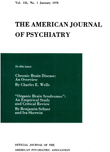THE MECHANISM OF THE INSULIN EFFECT ON ABNORMAL BEHAVIOR
Abstract
1. The effect of insulin injections, sufficient in strength to cause convulsive seizures and/or lethargy, has been systematically studied in relation to various aspects of the learning process.
2. For maze learning the following statements have been experimentally verified and established:
(a) Insulin has a greater disintegrative effect on the learning of a habit which has been less well fixed than on a habit of greater fixation.
(b) Insulin has a greater disintegrative effect on the learning of a longer and more difficult maze than on a shorter and easier maze, when both are learned to the same norm.
(c) Insulin has a disintegrating effect on the initial acquisition of a maze habit when compared to the acquisition of the same habit under normal conditions.
(d) The effects described in the above statement are definitely the result of insulin injection. Comparison of the use of insulin and saline solution proves insulin to have a disintegrative effect which is lacking in the saline situation.
Our work has demonstrated that the insulin effect may be used as a means of testing the relative age and stability of different habits and habit systems. Its employment may be regarded as a kind of "chemical surgery." We are continuing with the work and expect ultimately to apply it to the experimental neurosis which may be produced in the rat, and also to compare it with similar work carried out on human beings. The consistency of the results clearly substantiates our concept as to how the insulin effect operates to bring about a remission in schizophrenia and other psychotic and psychoneurotic conditions. We do not claim that it is the whole explanation of a lasting cure or complete recovery; as other factors, such as the response of the entire endocrine system, particularly the pituitary and adrenal glands, may also be involved in the final return to the normal. However, our work appears to explain the mechanism by which the immediate remission of the abnormal behavior is brought about.
Access content
To read the fulltext, please use one of the options below to sign in or purchase access.- Personal login
- Institutional Login
- Sign in via OpenAthens
- Register for access
-
Please login/register if you wish to pair your device and check access availability.
Not a subscriber?
PsychiatryOnline subscription options offer access to the DSM-5 library, books, journals, CME, and patient resources. This all-in-one virtual library provides psychiatrists and mental health professionals with key resources for diagnosis, treatment, research, and professional development.
Need more help? PsychiatryOnline Customer Service may be reached by emailing [email protected] or by calling 800-368-5777 (in the U.S.) or 703-907-7322 (outside the U.S.).



